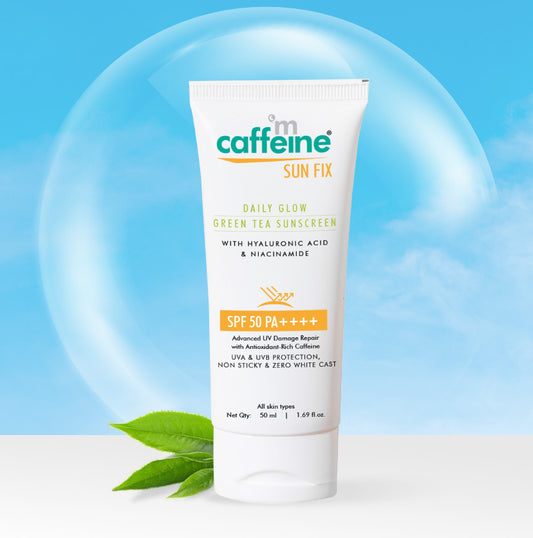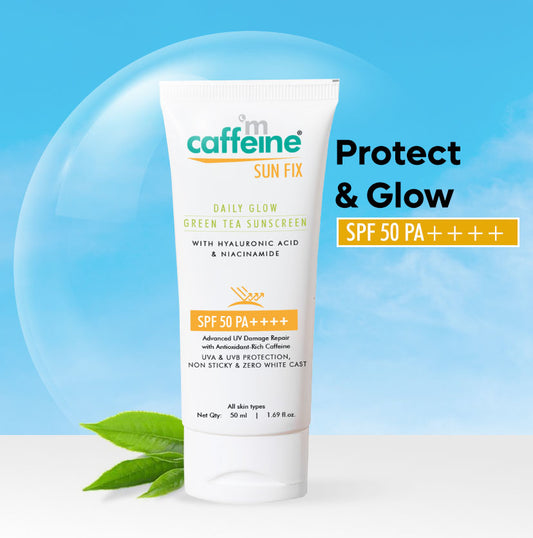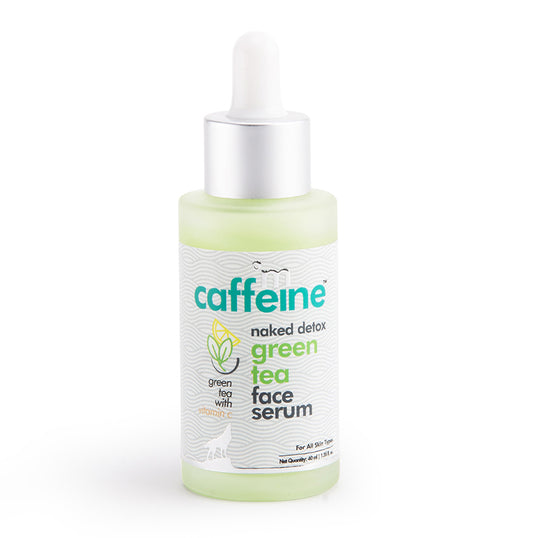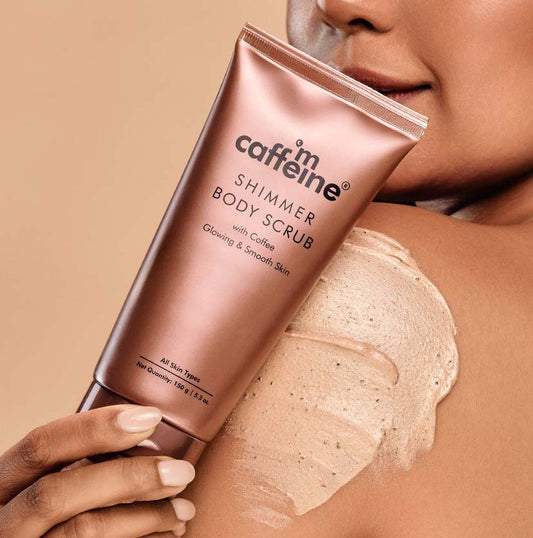Some Face serum benefits & Its Uses
20 Nov 2024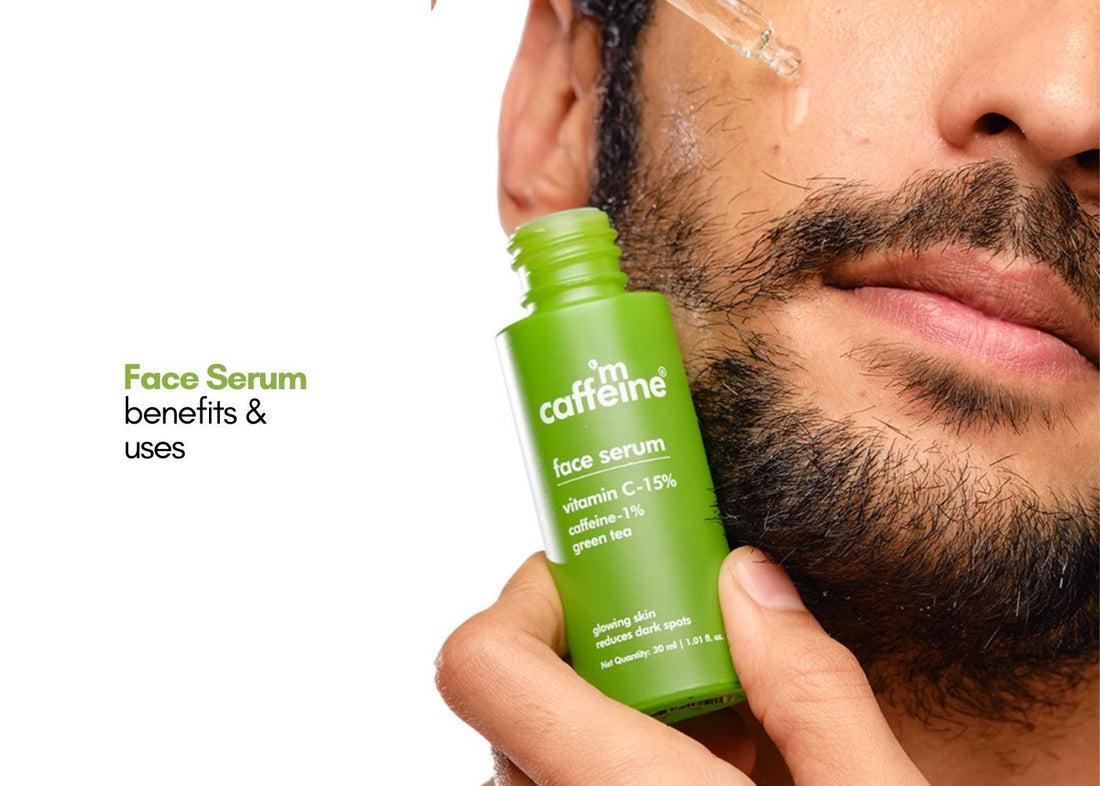
Table of Contents
- Introduction to Face Serums
- Benefits and Advantages
- Types of Face Serums
- Application Guide
- Results and Effectiveness
- Conclusion
- FAQs
What Are Face Serums and Why Should You Use Them?
A face serum is a lightweight, fast-absorbing skincare product that targets specific concerns like dark spots, fine lines, and dehydrated skin. Unlike heavy creams or lotions, serums penetrate deeper into the skin because of their smaller molecules and high concentration of active ingredients. They are versatile and effective, making them a must-have for anyone who is serious about their skincare routine.
Why use a face serum?
Adding a serum to your routine helps you:
- Improve skin tone and texture.
- Reduce the appearance of fine lines and wrinkles.
- Hydrate dry skin with ingredients like hyaluronic acid.
- Target sensitive skin issues like redness or inflammation.
The concept of skincare has transitioned from traditional remedies like oils and herbs to science-backed formulations designed to improve skin health. Modern serums incorporate powerful ingredients such as salicylic acid, ferulic acid, and niacinamide to address specific skin issues. This evolution reflects the growing demand for targeted and effective skincare solutions.
What Are the Benefits of Applying Serum on the Face?
Incorporating a face serum into your daily routine comes with numerous advantages:
Serums with hyaluronic acid or polyglutamic acid deeply hydrate the skin, addressing dehydrated skin and making it plump and soft.
Brightening serums containing kojic acid or alpha arbutin help reduce dark spots, leaving the skin radiant and even-toned.
Ingredients like retinol and peptides promote collagen production, reducing the appearance of fine lines and wrinkles.
Serums with salicylic acid or zinc PCA unclog pores, reduce breakouts, and calm inflamed skin.
They are formulated for specific concerns such as sensitive skin, redness, or hyperpigmentation, offering precision that creams often can’t.
Advantages of face serum:
Face serums are concentrated skincare powerhouses that deliver potent active ingredients deep into your skin. Unlike regular moisturizers, serums contain smaller molecules that penetrate deeper layers of skin, making them highly effective for targeting specific skin concerns. The lightweight formulation allows for quick absorption and maximum effectiveness when addressing issues like hyperpigmentation, fine lines, and uneven texture.
For optimal results, apply face serum to clean, slightly damp skin before your moisturizer. Most serums can be used both morning and night, though some active ingredients like retinol are better suited for evening application.
A few drops are typically sufficient for full-face coverage - remember that serums are concentrated formulas, so a little goes a long way.
Advanced Benefits and Clinical Results
Modern face serums incorporate scientifically-proven ingredients that work synergistically to improve skin health. Vitamin C serums, particularly those containing L-ascorbic acid, show significant results in brightening skin tone and reducing hyperpigmentation. When combined with ferulic acid and vitamin E, these formulations provide enhanced stability and antioxidant protection.
Choosing the Right Formula
The effectiveness of a serum largely depends on selecting the right formulation for your skin type and concerns. For beginners, starting with a lower concentration of active ingredients, like a 5% vitamin C serum, allows skin to adjust while still providing benefits.
More experienced users can opt for higher concentrations, such as 10-15% vitamin C, for more dramatic results. Remember to allow each serum to fully absorb before applying subsequent skincare products, and always follow with sunscreen during daytime use.
This ensures that the active ingredients can work effectively while maintaining proper skin protection.
What Types of Face Serums Are Best for Your Skin Type?
Hydrating Serums
- Best for: Dry skin or dehydrated skin.
- Key Ingredients: Hyaluronic acid, polyglutamic acid.
- Benefits: Locks in moisture, improves elasticity, and soothes dryness.
- Try: Kombucha Hydra Repair Face Serum.
Brightening Serums
- Best for: Uneven skin tone and dark spots.
- Key Ingredients: Alpha arbutin, kojic acid, vitamin C.
- Benefits: Fades pigmentation and promotes a glowing complexion.
- Try: Clear Glow 2% Alpha Arbutin Kojic Acid Brightening Serum Pads.
Anti-Aging Serums
- Best for: Fine lines and wrinkles.
- Key Ingredients: Retinol, peptides, black tea complex.
- Benefits: Stimulates collagen production, improves elasticity, and firms the skin.
- Try: Anti-Ageing Black Tea Complex Beginner’s Routine.
Acne-Fighting Serums
- Best for: Oily and acne-prone skin.
- Key Ingredients: Salicylic acid, zinc PCA, green tea.
- Benefits: Controls oil, reduces redness, and clears blemishes.
- Try: 2% Salicylic Acid Zinc PCA Matcha Tea Clear Skin Acne Pads.
All-in-One Serums
- Best for: Beginners or those with multiple concerns.
- Key Ingredients: Niacinamide, ferulic acid.
- Benefits: Hydrates, soothes, and brightens skin in one step.
- Try: Green Tea 10% Niacinamide Face Serum.
How to Apply Face Serum in Your Skincare Routine
Using a serum correctly ensures that your skin gets the full benefit of its ingredients.
Step-by-Step Guide
Cleanse Your Skin: Wash your face with a gentle cleanser to remove dirt and oil.
Apply Serum: Use 2–3 drops of serum and gently pat it into your skin.
Moisturize: Follow up with a moisturizer to lock in hydration.
Use Sunscreen (Morning Only): Protect your skin if the serum contains actives like retinol or vitamin C.
Benefits of Face Serums
Face serums offer targeted solutions for various skin concerns through their concentrated formulations.
Core Benefits:
- Provides potent antioxidant protection
- Brightens complexion and evens skin tone
- Helps combat visible signs of aging
- Delivers concentrated active ingredients1
User Experiences
Many users report positive results with consistent serum use:
- Improved skin brightness
- Enhanced plumpness
- Better overall complexion
When to Use Serums
- Application Tips: Best used after cleansing and before moisturizer
- More intensive treatments work well in evening routines
- Can be layered with other skincare products
Consider your specific skin concerns:
- Anti-aging (retinol, peptides)
- Calming (centella asiatica, aloe)
- Brightening (vitamin C, alpha arbutin)
- Hydrating (hyaluronic acid)
Remember that serums are supplementary products meant to enhance your basic skincare routine of cleanser, moisturizer, and sunscreen.
Conclusion
Face serums are an invaluable addition to any skincare routine. They address a wide range of concerns, from reducing the appearance of fine lines and wrinkles to hydrating dry skin and improving skin tone.
Choose the right serum for your skin type and make it a daily habit.
FAQs:
Most serums can be applied daily, either in the morning or at night, depending on their ingredients.
Start with cleansing, apply serum, follow with moisturizer, and finish with sunscreen if it's daytime.
Yes, but layer them in the order of consistency (lightest to heaviest) and avoid mixing harsh actives like retinol with AHAs.
Yes, opt for gentle serums with calming ingredients like niacinamide or green tea to avoid irritation.
Visible improvements typically appear after 4–6 weeks of consistent use, depending on the serum and concern.
Serums represent the shift toward precision and personalization in skincare. They offer solutions for every skin type and address niche concerns like sensitive skin or dark spots. Innovations like sustainable packaging and multi-functional serums reflect the growing demand for eco-friendly and effective skincare products.






